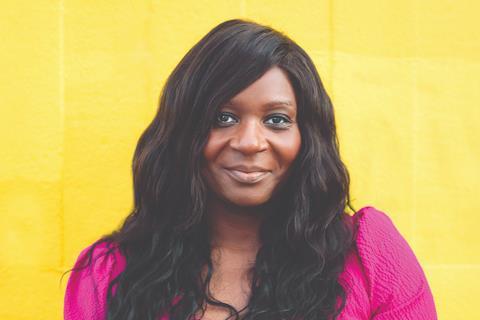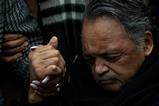Chine McDonald finds a new power in silent prayer

Recently, as I was leading prayers at church for our world, I found myself floundering.
I was raised in a tradition in which the art of oratory was prized, and well-crafted, spontaneous prayers were a sign of piety. Through your spoken prayers, you could demonstrate your knowledge of scripture. The more fervent your prayers – for healing, new jobs or house sales – the more likely God was to grant your request. None of this was said, of course, nor do I believe it was conscious or malicious, but it reflected our view of who God was.
As I attempted to lead prayers on that Sunday morning, I found myself wracked with doubt – not about the existence of the God to whom I was praying, but about whether me saying some words in a church in London would really make a difference to climate catastrophe, global poverty or the people of Gaza or Ukraine; whether it would make any difference to the people in our community suffering from terminal illness.
On top of that, I found my mind and words wandering into theological cul-de-sacs and having to reverse out of them. I was second-guessing everything I said. My prayers for ‘peace’ or ‘light in the darkness’, or my request for God to come alongside those who were suffering, just felt inadequate compared to the scale of the horror of these situations. When judged by the standards of the Christian tradition to which I’ve belonged, my prayer that day was pretty poor.
We find a collective unity in our unknowing and our fears
I am increasingly finding myself lost for words when it comes to prayer. Everything just feels too much to express in language. But this is precisely the point. It’s where we come to the end of ourselves and trust in a God in whom “all things hold together” (Colossians 1:17). I’m becoming increasingly relaxed with the silences – not having to put things into words; not having to express my prayers in the fanciest language or trusting in how many Bible verses I can recite back to God.
Many years ago, I read a book by Anne Lamott, which suggested there are only three words we need in prayer: help, thanks and wow. In Matthew 6:7, Jesus warns against those who “keep on babbling like pagans” because “they think they will be heard because of their many words.” Jesus then teaches his disciples to pray, suggesting the words of the Lord’s Prayer might fit any situation. It’s here that I find the point of prayer, including praying out loud. In praying together – even when we don’t know the right words to say – we find a collective unity, a togetherness in our unknowing and our fears. Perhaps in my floundering prayers, others might find a place for their own uncertainty, collectively expressed towards a God who already knows.
A few weeks ago, I joined a group of parliamentarians who meet monthly for communion. I found this gathering of people from across party lines who sat, heads bowed, reciting the ancient words of the Apostles’ Creed in unison, profoundly moving. Cole Arthur Riley, author of Black Liturgies (Hodder & Stoughton), talks about the comfort found in saying words that have been said by followers of Christ over centuries, who have all faced the same uncertainties as we do: disunity, poverty, sickness, doubt, death. Sometimes, all we need to do is say the words, and pray God will do the rest.






































1 Reader's comment